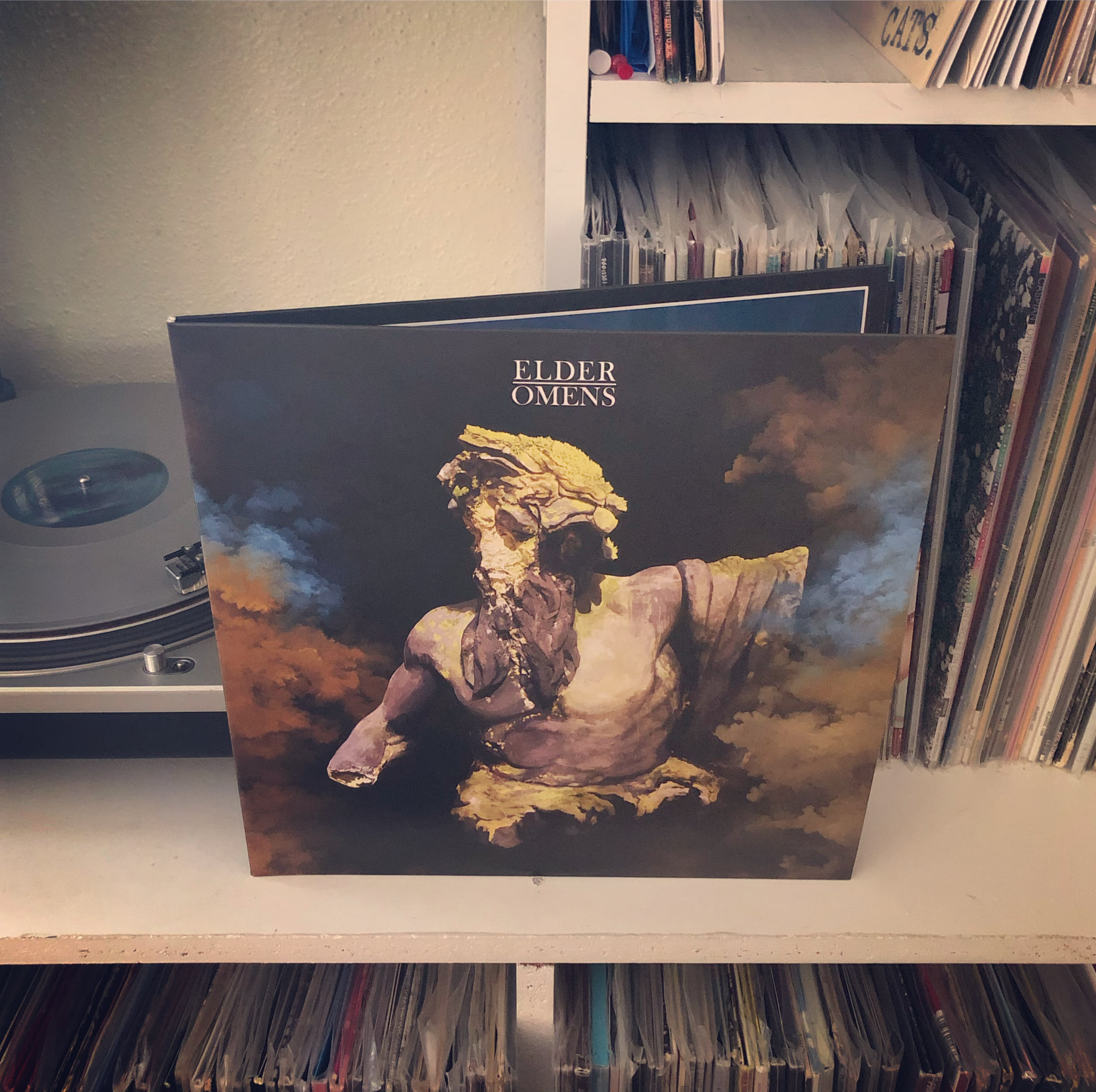 Three years ago, I fell in love with Elder’s Reflections of a Floating World, an interplanetary blend of doom metal, psychedelic rock, Krautrock, and prog.
Three years ago, I fell in love with Elder’s Reflections of a Floating World, an interplanetary blend of doom metal, psychedelic rock, Krautrock, and prog.
Their fifth record Omens takes Reflections’ more meandering elements and lets them really breathe. Synths and electric pianos are just as prominent as crushing guitars, creating an album that feels more Rush than Black Sabbath.
And the results are stunning.
Reflections certainly had no fear of prog and experimentalism. Most of the songs passed the ten minute mark featuring long instrumental sections. One track felt ripped right out of Neu!’s catalog. But Omens leans in even heavier.
This is made obvious from the onset. “Omens” opens the disc with an arpeggiating Fender Rhodes dancing around vintage synths with all the pomp and pot smoke of late 70s prog rock. But then, they’re joined by huge crashing guitar chords and doom-ready drums. Throughout it’s ten-and-a-half-minute runtime, it hits soaring highs, melodic solo sections, and the kind of heaviness usually reserved for black holes.
It’s an absolutely stunning intro into the album, and the rest of the tracks play with similar exploration. Yet as far as they wander, the songs remain consistent. At a casual listen, it might seem like all the songs sound the same. However, that ignores just how many sounds are in each song. Sure, each track follows a similar format of Heavy Riff, Vocal Section, Instrumental Section, Riff Reprise, but every section is distinct from song to song and are immaculately composed.
After an anthemic, almost prog-metal opening riff, “In Procession” plays liberally with delay pedals and Edgar Winter-esque synth lines. The third track, “Halcyon,” builds slowly on a Krautrocky synth bass loop while ambient guitars swirl around it. Across its thirteen-minute runtime, it flirts with sludge metal, glam rock, and psychedelic. It’s a rare thing for a band to recall Can, King Crimson, Explosions in the Sky, and Isis in the same song, but “Halcyon” pulls it off.
“Embers” is perhaps the most urgent track, being pulled along by a rushing bass line that can’t be bothered to wait around for the synths and guitars to finish their dance this time around. Between its hasty drumming and angular chord hits, there are moments that sound more At The Drive In than The Mars Volta. When the song pulls back six minutes in for the solo section, it’s the first chance to catch your breath. Eventually, that section bursts and swells to the most triumphant moment on the disc.
Closer “One Light Retreating” opens with a solemn note, a single minor key, guitar mourning through delay pedals before it’s joined by a similarly morose, though powerful, metal riff. After a short string of vocals, it returns to a bombast of punishing bass lines, cacophonous drums, fiery guitar solos, and floating synthesizers. Around seven minutes in, the song seems to end, the fury collapsing to near silence. But then, the haze of analog pads is eventually met with a swirling electric piano, which is met with other synthesizers, and a soft drum beat. After a few minutes of this swell, it finally bursts with crashing guitars and cymbals, finishing the record on an anthemic yet bittersweet note.
There’s a sense that maybe Omens was released a little too late. Had this record come out in the 1970s, it likely would sit alongside albums like 2112, Master of Reality, and In the Court of the Crimson King as an indelible piece of mind bending, heavy prog rock. But even fifty years after it would have been a hit, Omens feels fresh and otherworldly.